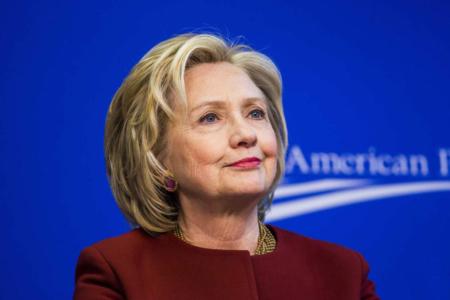But why does she have such a strong hold on black and Hispanic voters? Surely not because of her education policies.
Hillary Clinton often speaks about income inequality and helping disadvantaged black and Hispanic communities. However, an examination of her K-12 education policies shows that this “empowering” message is nothing short of hypocritical.
The truth is, the government will never be able to use taxes and transfer payments to dissolve inequality, and if leftist politicians really cared about advancing the lives of the less fortunate, the first thing they would do is free up our schools, so students in poor communities could learn in better, safer environments.
School choice has long been favored by parents of students in struggling and underfunded school districts, yet Clinton’s stance on this issue raises questions about her true ability to create opportunity for struggling socioeconomic groups.
To start, we should see where minority groups lie on this issue. A Friedman Foundation survey found that while 92 percent of Hispanic parents send their children to public schools, only 32 percent would continue to do so if given a choice among public, private, charter, and home schooling. On the issue of school choice specifically, an overwhelming 71 percent favored school choice – that is to say the government funding students to go to the school of their choice, rather than simply limiting them to the public school in their district. Only 24 percent of Hispanic parents in that study opposed school choice.
These numbers are similar among black parents. A study by the Black Alliance for Educational Opportunity found that about 60 percent of black parents support government-funded vouchers for school choice, and 70 percent said they support providing parents with more educational choices in their local school districts.
The strong support among diverse groups is no surprise. Education provides the best path to prosperity for many struggling groups. Under the current system, only wealthy parents have a legitimate choice of how to educate their children. Less wealthy parents cannot afford to send their children to private schools or hire private tutors. As a result, less fortunate parents are limited to sending their children to the public schools in their districts. Most parents also cannot afford to quit their jobs or cut hours to homeschool their children themselves. Lastly, many of these parents cannot afford housing in districts with better public schools, or simply may not be able to move due to personal or work-related obligations. This means that for lower-income families, there is only one choice of schooling for their children.
School choice programs offer both short- and long-term solutions to the problem of failing inner-city schools. In the short term, these programs allow poorer students to switch to better schools, public or private. This gives these students a true chance at a quality education, rather than subjecting them to the failing public schools in their districts. Long-term, school choice brings competition into the marketplace for both public and private schools, which improves the quality of all schools.
Nobel laureate economist Dr. Milton Friedman once said that for black people in the lowest income classes, and for black people who have been most affected by discrimination, “[t]here is not anything you could do that would be more effective than the voucher system.” Today’s students suffer because of a lack of competition among public schools. Because students are required to go to the public schools in their districts, public schools do not have to compete with each other.
Hillary Clinton is quick to note the struggles of many black and Hispanic Americans, but on the issue of school choice, she falls flat.
For a presidential candidate who says she believes in prosperity for struggling families, and who preaches on black and Hispanic issues, Clinton could not be more out of touch on education. On the campaign trail, Clinton has come out against funding for private school vouchers, despite the strong support among black and Hispanic voters. Why does she oppose school choice? Probably because of the big donations she’s received from the American Federation of Teachers and the National Education Association, the nation’s two major teacher unions. She received endorsements from both unions in 2016 and has received donations totaling nearly $8 million over the course of her career.
Teachers unions have long been opposed to school choice. After all, local public schools having a monopoly over the students in their district ensures that the schools will get more funding. School choice, while highly beneficial for the student, forces public schools to compete and improve.
In this instance, Hillary Clinton has taken a stance that endangers the academic opportunity for inner-city students, a large population of whom are black and Hispanic, and has instead put the interests of her big union donations first.

